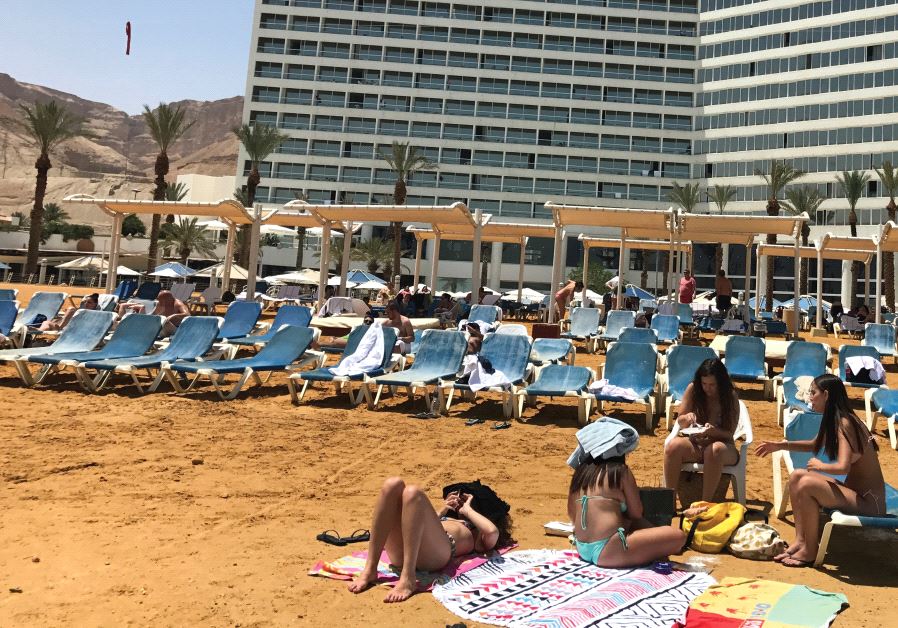Room with a view – of the Dead Sea
Ein Bokek’s Crowne Plaza Hotel offers a weekend of fun at the iconic salty sea, with children’s activities and hiking at your doorstep.
 Guests enjoy a day at the beach (with the Crowne Plaza in the background)(photo credit: SETH J. FRANTZMAN)
Guests enjoy a day at the beach (with the Crowne Plaza in the background)(photo credit: SETH J. FRANTZMAN)